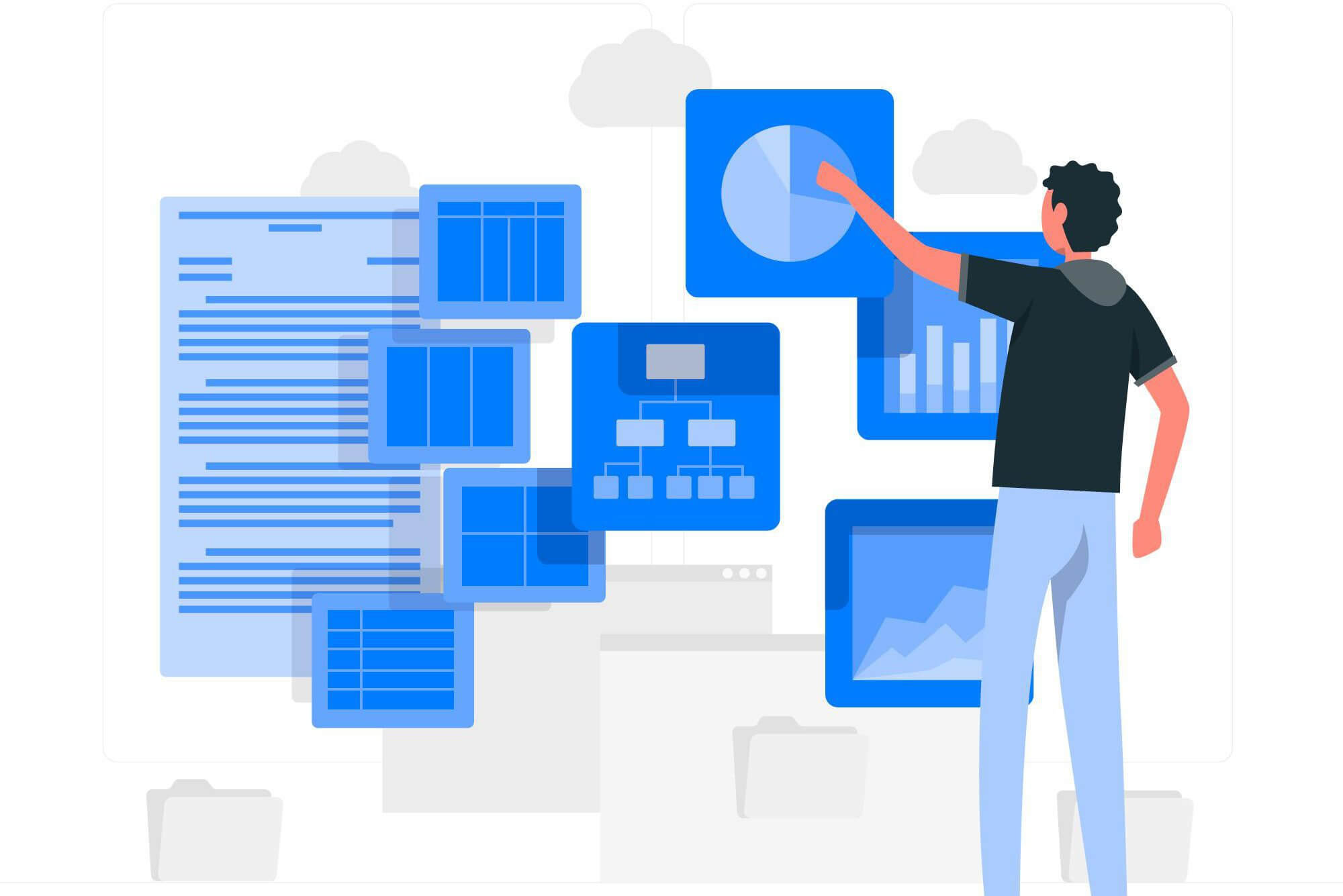Surfing the web can be dangerous. Anyone with even a little experience in the technical field can spy on your online activity if you are using public Wi-Fi.
A Virtual Private Network (VPN) may launch a protected network connection and mask your location, online activities, and identity. A VPN protects personal data like your bank information, passwords, and credit card details on mobile devices, PCs, or desktop computers. Other than using public Wi-Fi, you can watch your favorite shows on streaming apps or play video games online more safely through a VPN.
A VPN server will encrypt your online, making it tougher for third parties to stalk your online movements and steal sensitive information for identity theft. Moreover, VPNs can help big corporations and individuals correspondingly. People also use VPNs when they want to use blocked websites.
However, are VPNs secure? This article will discuss how VPNs can protect your internet connection and how far that security can reach.
How Safe And Secure Is A VPN Server?
A VPN protects your internet connection by encrypting your data and concealing your online activity from hackers, the government, and your ISP (Internet Service Provider). ISPs are authorized to keep track of your IP address to monitor and trade your browsing history, which could restrain your connection. VPN encrypts data and offers an additional layer of safety, especially for companies that frequently use remote server access.
Regarding your privacy online, the most protected VPNs guarantee sound privacy policies and measures to repair leaks and will not keep records of your online browsing history.
Moreover, businesses use VPNs to safeguard corporate information and control user entry to that data. They protect data as users connect with websites and apps on the internet while keeping specific resources concealed. They are generally used for access management, but identity and access control solutions can also make managing user access easier.
How A VPN Works And Secure Data?
Encryption is a secret code that scrambles sensitive users’ data understandable by the official parties. It alters data and makes it look haphazard to cybercriminals or anyone who aims to block it.
A virtual private network establishes encrypted links between different devices. All gadgets that are connected to the VPN have encryption keys that are used to encode and decode data transmitted between them. This method might need some response time, slowing network traffic.
The result of this conversion of data into a code is that VPN connections will stay private when they extend across internet infrastructure.
What Aspects Make A VPN Safe?
Each VPN provider promises different features, and each has its advantages and disadvantages. The first thing to do when looking for the perfect VPN for your virtual network requirements is to consider the cost. Keep in mind if VPN providers are free or cheap and do not charge consumer fees, they are paying for their costs by selling your personal and sensitive information to third parties.
Here are a few factors to make sure your VPN is secure:
No Leaking Of Internet Protocol Address
VPNs are supposed to conceal or hide your IP location and stop others from stalking your activities on the internet. Sometimes, security shortcomings can expose your IP address even with a virtual private network. Thus, it is essential to ensure that you choose a VPN that particularly functions to stop leaks. Before choosing a VPN service, make sure you check their client reviews. VPNs should use an encryption key to protect data.
No-log VPN
A no-log VPN service does not accumulate or record any data transmitted via the network. They do not save your confidential details, such as your online visits, downloads, or search history. A no-log policy ensures your online privacy and anonymity from everybody, including your VPN provider. So, if a hacker wants to infiltrate a VPN, they will not be able to do much.
Moreover, reviewing the VPN provider’s policies is essential to check if they keep a record of their users’ online activities before signing up.
VPN Kill Switch
A kill switch guarantees that your device will not retreat to its default connection if the VPN connection drops.
The VPN kill switch will trigger and secure your device from unstable network access. This averts any leaking of data from the encrypted VPN tunnel. Therefore, kill switches are a crucial safety feature.
Multifactor Authentication Security
This approach makes users verify their identity multiple times before signing in to their VPN account. You will have to enter a passcode, and a four-digit code will be sent to you through text notification. The added authentication allows only you to access your virtual private network, making it more difficult.
The VPN is secure if VPN providers use a combination of properly implemented ciphers and protocols and encryption protocols.
How Do VPNs Help With Access Control?
Businesses use VPNs to control access to oversee who has access to different resources. The organization sets up many VPNs, each relating to different resources. Users can have different data access levels by being assigned to these VPNs.
Access management is essential for safeguarding and protecting sensitive corporate data. Without internet access management, unauthorized people can see and alter data, causing data breaches by cybercriminals.
What Are The Disadvantages Of Using A VPN For Access Control?
SPOF (Single point of failure)
Cybercriminals cannot observe encrypted traffic if they cannot connect to the VPN. However, if they gain access to a VPN, they gain entrance to all the resources related to that network. The hacker can gain access to VPN-encrypted data with just one compromised device or account.
This is called the castle and moat model. Imagine a castle that is shielded by a moat/trench. The castle will be protected from enemies until they cannot cross the moat. Regarding VPN safety, the moat refers to the VPN accounts. If hackers gain internet access and rob your login credentials, they cross the moat and acquire access to the corresponding VPN data.
The solution to this problem is zero trust security which offers a more secure method by not trusting anyone by default.
VPNs Are Too Complex To Manage
Using numerous VPNs at a large scale is challenging to handle. In large companies, different people require different kinds of access. Information technology units are compelled to put up multiple VPNs or instruct users to access numerous VPNs simultaneously, which is problematic and can adversely influence performance.
VPNs Do Not Provide Unlimited Access
VPN creates access for a larger set of users. However, individual users need access to specific systems.
Putting up a VPN for each worker is ineffective, cost-intensive, slow, tedious, and time-consuming. Controlling access for one individual demands more granular access control.
Is Free VPN Service Secure?
As mentioned earlier, free or cheap VPN services are ineffective for assuring VPN security as they will not provide a secure tunnel to safeguard your data and online browsing activity. Here is why you should not use free VPNs:
Free VPN Compromises Security
Cheap or free VPN services have malware that hackers can use to access and steal your data and establish a cyberattack, compromising your online privacy.
Free VPN Allows Tracking Of Your Internet Activity
VPN security guarantees the protection of a user’s online activity. Some free VPNs track your online movement and collect information to sell to interested parties. Moreover, these free VPNs do not pretend to provide a secure connection nor disclose their policy about selling or sharing consumer data.
Free VPN Restricts Data Usage
VPN security protects information or hides your IP address when enjoying a show on inaccessible apps or websites in their area. However, free VPN users will face a restricted number of data to use. This includes restricting users’ internet access, reducing the data they can utilize every month, restricting the time the VPN can be used while browsing, or just freeing a few internet sites. Thus, a free virtual private network is unsuitable for those who want to secure their online information or hide their IP address for a significant time.
Free VPN Slow Down Your Internet Speed
Cheap or free virtual private networks deliver more lagging net speed than paid VPNs for internet users. Even well-known VPN companies’ free VPN versions will deliver a slow connection, encouraging more people to buy their paid VPN version.
Free VPN Targets People With Advertisements
Free VPN services use ads to sell user data by sharing and targeting your data without consent, compromising your online privacy. Moreover, these advertisements have malicious software and can slow down your internet. Also, a free virtual private network raises a privacy problem because the company might share your activity online with third parties. These free services do not implement ad-blocking or malicious software protection to secure your data and online identity.
Frequently Asked Questions About Virtual Private Networks VPN
Why Do I Need A VPN If My Browser Has Private Browsing?
Famous web browsers like Google Chrome, Safari, and Mozilla Firefox have a private browsing mode that allows people to browse the internet without saving their search data, internet history, and online cookies.
An internet browser’s private browsing feature will prevent information from accumulating on your computer or mobile phone. Still, it will not stop your internet service provider from accessing that data. Moreover, third parties can also notice your web traffic via private browsing.
Can A VPN Be Hacked?
While it is quite challenging to do so, VPNs can be hacked. Many high-performing VPNs use high quality protocols in combination with the encrypted connection, making it unattainable to breach data. However, VPNs will protect your internet traffic and IP address and encrypt your online browsing history, but that is it. If you open suspicious websites, click on malicious links, or download compromised files, VPNs cannot keep you safe and will be hacked.
Are VPNs Necessary?
If data privacy concerns you, virtual private networks are an affordable and easy safety measure that provides a basic level of online security. It may seem unnecessary to guard your online activity when you are not involved in deceptive activities. Still, you must protect sensitive data, such as your login credentials and financial data.
Is Using A VPN Legal?
VPNs are not illegal in many countries, like America, England, and Canada. However, countries like Russia and China have rules against VPN access to forbidden websites.
However, no matter which country you are in, illegal activities via a VPN are always prohibited and illegal.
Final Thoughts
VPNs help hide your activities on the internet and IP location, so you are certain that no one is watching your data and do not become the target of cyberattacks and data breaches. VPN security is loaded with variables that decide if you are shielded online.
We suggest you choose a high-performing premium VPN to protect your online activities and data. You can check our related VPN articles for more information!






